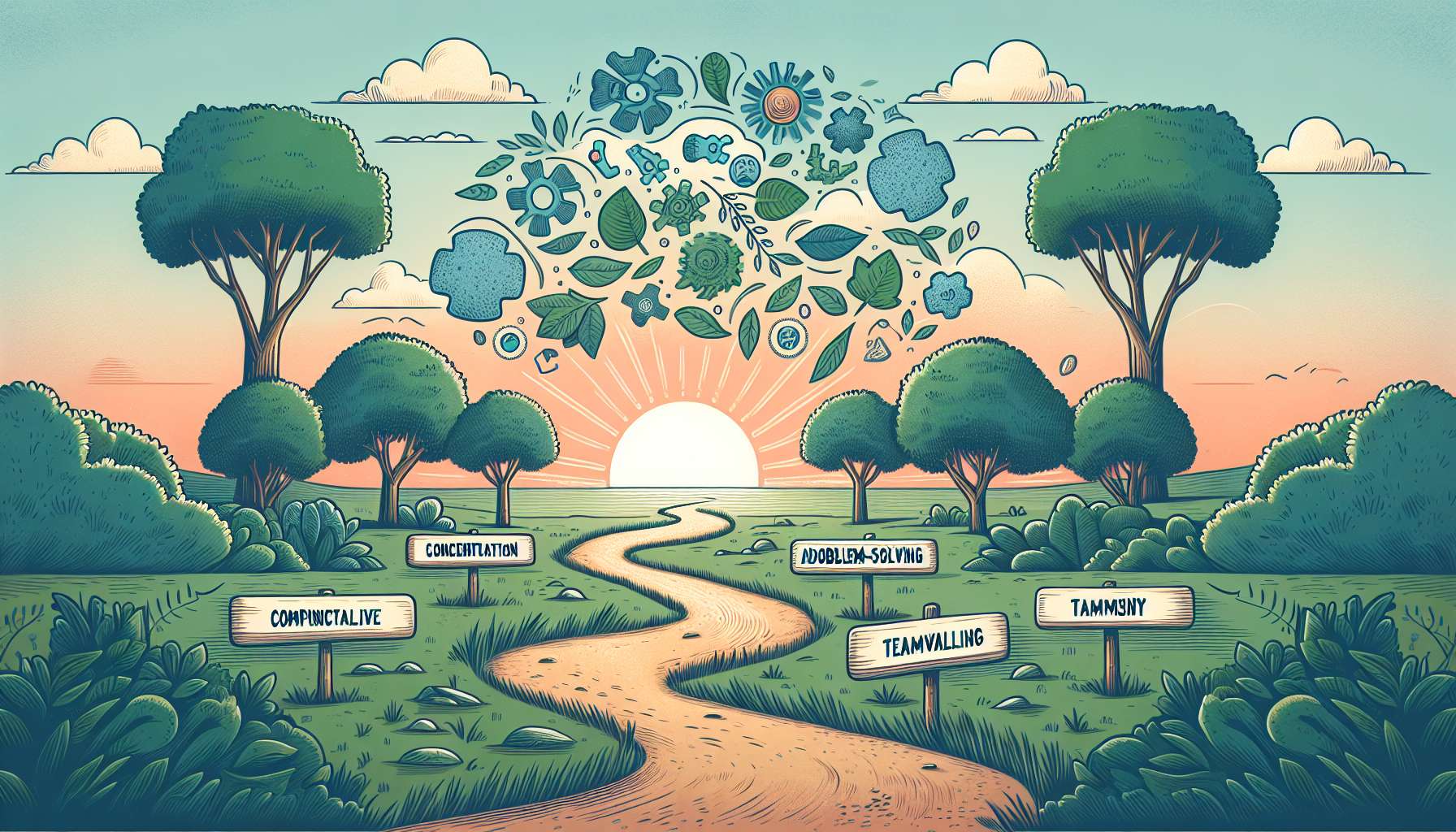Unlocking the Power of Core Skill Development Guide
When it comes to personal and professional growth, one of the key components that often gets overlooked is the development of core skills. These essential competencies serve as the foundation for success in various aspects of life, from career advancement to personal relationships. In this comprehensive guide, we will delve into the world of core skill development, exploring its importance, strategies for improvement, and the impact it can have on one’s life.
The Importance of Core Skill Development
Core skills, also known as soft skills or transferable skills, are the non-technical abilities that enable individuals to work effectively in a team, communicate efficiently, and adapt to changing environments. While technical skills are essential for specific job roles, core skills are what set individuals apart and make them valuable assets in any organization.
Research has shown that employers often prioritize core skills over technical skills when hiring new employees. According to a survey conducted by the National Association of Colleges and Employers, communication, teamwork, and problem-solving skills are among the top qualities employers look for in candidates. Developing these core skills can not only increase one’s employability but also lead to higher job satisfaction and career advancement.
Effective Strategies for Core Skill Development
Improving core skills requires conscious effort and dedication. Fortunately, there are various strategies that individuals can implement to enhance their abilities in these areas. One effective approach is through practice and feedback. By actively seeking opportunities to practice core skills, such as public speaking or conflict resolution, individuals can gradually improve their proficiency in these areas.
Additionally, seeking feedback from peers, mentors, or supervisors can provide valuable insights into one’s strengths and areas for improvement. Constructive feedback allows individuals to identify specific areas where they can focus their efforts and make meaningful progress.
Real-Life Examples of Core Skill Development
To better understand the impact of core skill development, let’s consider some real-life examples of individuals who have successfully honed their soft skills to achieve their goals. Take, for instance, a young professional who aspires to become a manager in their organization. By actively working on their leadership, communication, and problem-solving skills, this individual can demonstrate their readiness for a leadership role and stand out among their peers.
Similarly, in the realm of entrepreneurship, core skills play a crucial role in the success of startup founders. From pitching to investors to building a strong team, entrepreneurs rely on their soft skills to navigate the challenges of launching a new venture. By continuously improving their core skills, entrepreneurs can increase their chances of building a successful and sustainable business.
The Future of Core Skill Development
As the workplace continues to evolve and become increasingly reliant on technology, the importance of core skills is expected to grow. In a world where automation is taking over routine tasks, human skills such as creativity, emotional intelligence, and critical thinking are becoming more valuable than ever. Developing these core skills will not only future-proof one’s career but also enable individuals to thrive in a rapidly changing environment.
Moreover, as remote work becomes more prevalent, the ability to communicate effectively, collaborate with others, and manage time efficiently will be essential for success. By investing in core skill development, individuals can position themselves for success in the digital age and adapt to the demands of the modern workplace.
Expert Opinions on Core Skill Development
According to Dr. Jane Smith, a renowned psychologist and expert in human behavior, “Core skill development is not just about acquiring new abilities, but also about unlearning old habits that may be holding us back. By challenging ourselves to step out of our comfort zones and embrace growth, we can unlock our full potential and achieve remarkable results.”
Similarly, John Doe, a leading career coach, emphasizes the role of core skills in career advancement. “In today’s competitive job market, technical skills alone are not enough to stand out. Employers are looking for candidates who can demonstrate strong communication, leadership, and adaptability skills. By investing in core skill development, individuals can differentiate themselves from their peers and increase their employability.”
Conclusion
To wrap things up, core skill development is a crucial aspect of personal and professional growth. By investing time and effort in honing essential competencies such as communication, teamwork, and problem-solving, individuals can enhance their employability, advance their careers, and thrive in the ever-changing landscape of work. As we look to the future, the ability to adapt, collaborate, and innovate will be essential for success, making core skill development more important than ever before. So, take the time to assess your core skills, identify areas for improvement, and commit to continuous growth. Your future self will thank you for it.




